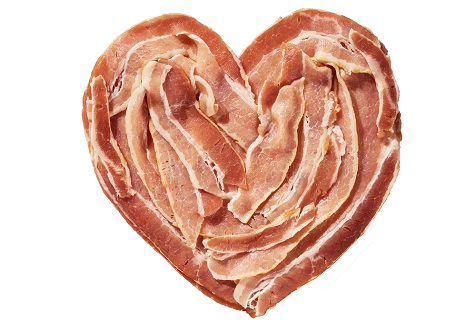Created by Cardiologists
Trusted by Doctors
Trusted by Doctors
1-800-811-1007
CLOSE
There are no items in your bag
- Why CardioTabs?
- Products
- Sleep Pack
- Memory Support Pack
- Pickleball Recovery Pack
- Immunity Starter Pack
- Mental Health Starter Pack
- Cholesterol Control Pack
- Nerve Relief Pack
- Magnesium Plus
- Advanced Formula Probiotic
- Curcumin
- BONE Essentials
- Ultra CoQ10
- Omega-3 Lemon Minis + Vitamin D3
- Omega-3 Enteric-Coated
- Omega-3 Extra Strength + Vitamin D3
- Ultra Strength Liquid Omega-3 + Vitamin D3
- CardioSterol
- Red Yeast Rice
- CardioTea with L-Theanine
- Multivitamin - 60 Day
- Multivitamin - 120 Day
- Vitamin D
- Vitamin D Test
- Forever Young Diet & Lifestyle Book
- Let Me Tell You A Story
- Omega-3 Index Test
- Quick Shop
- Shop By Health Interest
- Supplement Advisor
- Blog
- Rewards Program
Product added to shopping cart





 Recent headlines proclaiming, “The Flip-flop on Meat - Now Bacon is OK” surprised and confused most Americans and enraged many nutritional experts. These headlines were prompted by a highly controversial group of articles published in the Annals of Internal Medicine that concluded the studies linking processed meat and red meat to poor health are flawed and are not conclusive enough to warrant the major health organizations’ advice to cut down on burgers and salami. What’s more, the authors also argued that people like their bacon cheeseburgers so much they are not likely to give them up, no matter what “diet experts” advise.
Recent headlines proclaiming, “The Flip-flop on Meat - Now Bacon is OK” surprised and confused most Americans and enraged many nutritional experts. These headlines were prompted by a highly controversial group of articles published in the Annals of Internal Medicine that concluded the studies linking processed meat and red meat to poor health are flawed and are not conclusive enough to warrant the major health organizations’ advice to cut down on burgers and salami. What’s more, the authors also argued that people like their bacon cheeseburgers so much they are not likely to give them up, no matter what “diet experts” advise.